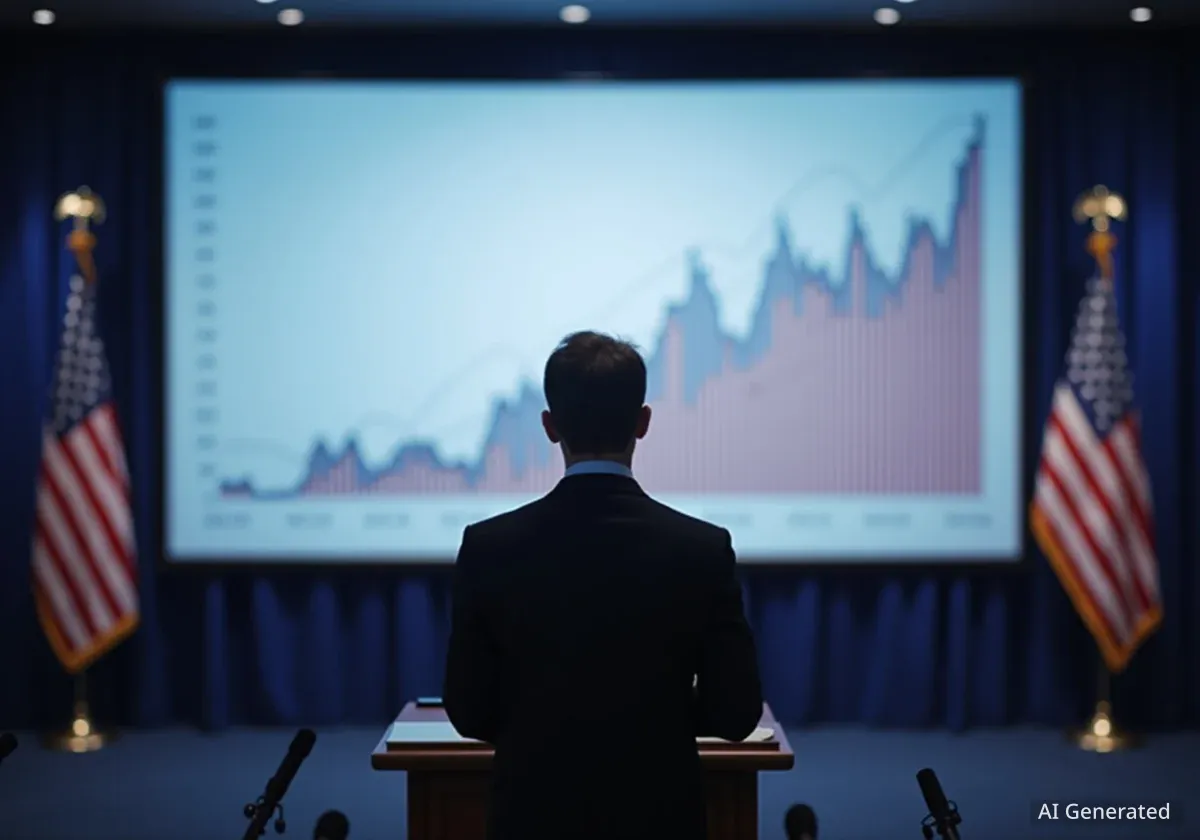The Young Liberals of Switzerland are demanding an immediate halt to all image campaigns by the Swiss Broadcasting Corporation (SRG). They also propose that SRG's financial operations be placed under the oversight of the Federal Audit Office. This move highlights ongoing political debate surrounding the public broadcaster's self-promotion efforts.
Key Takeaways
- Young Liberals seek to end SRG image campaigns.
- They propose SRG be audited by the Federal Audit Office.
- Previous SRG ad campaigns have sparked political controversy.
SRG's Self-Promotion Under Scrutiny
The Swiss Broadcasting Corporation (SRG) frequently faces political criticism regarding its self-promotion and advertising campaigns. These campaigns are designed to enhance the public image of SRG and its various channels, such as SRF.
However, some political groups view these efforts as inappropriate, especially when they occur near public votes or initiatives that could affect SRG's funding or structure. The Young Liberals' recent demands reflect a growing sentiment for stricter oversight of the public broadcaster's activities.
Fact: SRG Funding
SRG is primarily funded by compulsory household fees, which are collected from every household in Switzerland. In 2022, these fees accounted for approximately 75% of SRG's total revenue, amounting to over 1.2 billion Swiss francs. Advertising revenue makes up a smaller portion, around 20%.
Past Controversies Over SRF Advertising
One notable instance of controversy occurred approximately one year ago. SRF, a German-language unit of SRG, launched an advertising campaign with the slogan: 'Mein SRF ist unser SRF' (My SRF is our SRF).
This campaign drew strong criticism from various political figures. Marcel Dettling, president of the Swiss People's Party (SVP), publicly condemned the initiative. He argued that the campaign constituted an illegal attempt to influence public opinion.
"This is clearly to be regarded as illegal influence in the run-up to the halving initiative," Marcel Dettling stated regarding SRF's campaign.
The "halving initiative" refers to a popular vote proposal that aimed to significantly reduce the fees paid to SRG. Critics like Dettling believed SRF's campaign was a direct response to this initiative, intended to sway voters.
Calls for Federal Audit Office Oversight
The Young Liberals are now pushing for SRG to be placed under the authority of the Federal Audit Office (FAO). The FAO is Switzerland's supreme financial supervisory body. It is responsible for auditing federal administration and other organizations that receive federal funds.
Currently, SRG operates under a different oversight structure. Bringing it under the FAO would mean a more rigorous and independent financial review. This change would aim to ensure greater transparency and accountability in how SRG uses its funds, especially those derived from public fees.
Understanding the Federal Audit Office
The Federal Audit Office (FAO) acts as the parliamentary and governmental auditing body in Switzerland. Its primary role is to examine the legality, regularity, and economic efficiency of federal spending. It operates independently of the Federal Council and the federal administration.
Proponents of this change argue that, as a public service broadcaster funded by mandatory fees, SRG should be subject to the same level of scrutiny as other federal entities. This would ensure that public money is spent efficiently and in line with its mandate.
Political Impact and Future Implications
The Young Liberals' demands are part of a broader political discussion in Switzerland about the role and funding of public service media. Debates often focus on the balance between editorial independence, public service mandate, and financial accountability.
Similar discussions have taken place in other European countries. Public broadcasters frequently face pressure to justify their funding and operational costs, particularly in a rapidly changing media landscape.
- Transparency: Increased oversight would enhance public trust.
- Accountability: A federal audit would ensure responsible use of funds.
- Mandate: Clarifying SRG's role in relation to its advertising.
The outcome of these demands could significantly impact SRG's future operations. If the proposals gain traction, SRG might need to reconsider its approach to self-promotion and internal financial management.
According to political analysts, initiatives challenging public broadcasting models often gain support during periods of economic uncertainty or when public trust in institutions is low. The Young Liberals' timing aligns with ongoing discussions about the size and scope of public services.
The Broader Debate on Public Service Media
The debate surrounding SRG's image campaigns and its financial oversight is not isolated. It is part of a larger national conversation about the necessity and extent of public service media in Switzerland.
Critics argue that extensive self-promotion by SRG distorts the market for private media. They suggest that public funds should not be used for advertising that competes with commercial outlets.
Supporters of SRG, however, emphasize the importance of public broadcasting for providing diverse, high-quality information and cultural content across all linguistic regions of Switzerland. They argue that some level of self-promotion is necessary to inform the public about their offerings and justify their existence.
The Young Liberals' proposal to involve the Federal Audit Office introduces a new dimension to this debate. It shifts the focus from purely political arguments to questions of financial governance and regulatory compliance.
The decision on whether SRG will face stricter financial audits or cease its image campaigns will ultimately rest with the Swiss Parliament and potentially the voters, should a popular initiative be launched.
This development underscores the dynamic nature of media policy in Switzerland. It also highlights the continuous effort to balance public service requirements with principles of economic efficiency and political neutrality.



